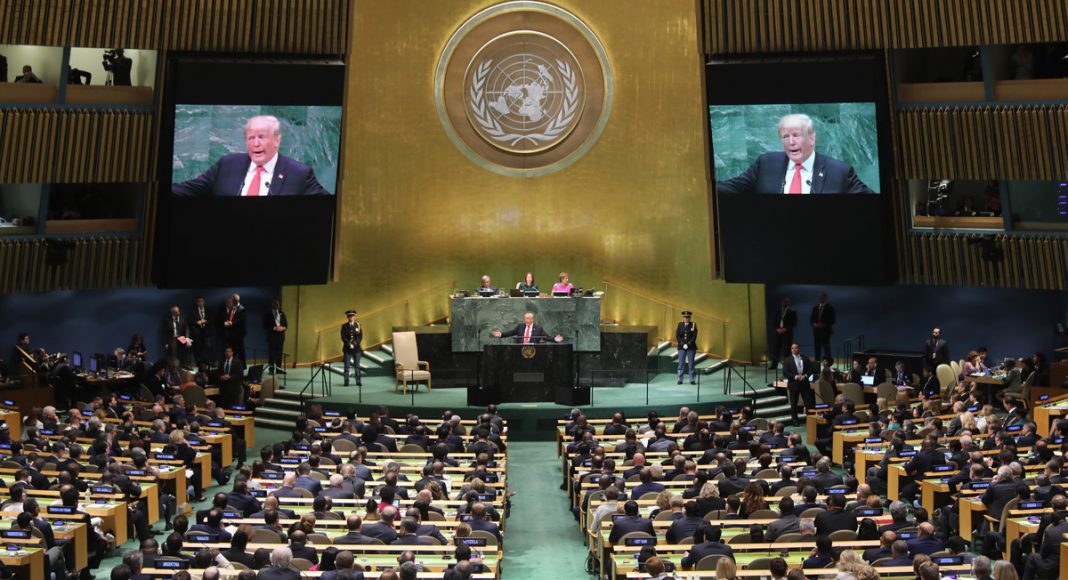President Trump, in a rare trip to the U.N., called together leaders of 130 countries in order to sign a letter to agitate the War on Drugs. The leaders that made appearances and the ones that didn’t spoke volumes: many U.S. allies refused, including Germany and Spain. However, in a surprising turn of events, Prime Minister Justin Trudeau of Canada signed on.
Former Prime Minister of New Zealand Helen Clark believes that both Canada and Mexico were coerced into signing the letter, citing NAFTA talks currently being held in Washington. “It’s giving in to bullying and extortion and it’s outrageous,” she said without mincing a word.
-
Related Story: This American Island Destination Just Legalized Cannabis
Though the U.N. talks centered around opium and cocaine, there was no talk as to how prescription medications play into the opioid crisis. There was also no mention of how human rights play an enormous role in these already failed wars.
The War on Drugs has been bloody, brutal and ineffective since its start. It does very little but to ramp up competition between rival cartels and create more inventive ways of trafficking. But at the same time as Trump took over the U.N., there was a gathering of world leaders in Mexico City, looking toward the future of drug policy and what it could really be.
Known as the Global Commission on Drug Policy, the group includes 12 former heads of state, which has been trying to find an end to prohibition since 2011. Monday, they released a report requesting that governments abandon drug wars, mitigate and regulate lower grade drugs and contribute reform ideas as to international treaties, some of which would still need prohibition and some forms of punishment included.
Back in the U.S., cannabis was thankfully absent during the talks, which lends hope that the global progress that’s been made will continue on its upward trajectory. Plus, it’s highly unlikely that Canada or Mexico would have signed had cannabis prohibition been an issue.
According to Cannabis Wire, Nicky Haley had this to say about the revamped drug war efforts:
“Everyone knows someone who has suffered or died from abusing illegal drugs.” The country, she continued, “is confronting a rapid opioid crisis that is fueled by the rapid increase in the illicit supply of synthetic drugs, like Fentanyl.” Pointing to Latin America as the main culprit, finger pointing, bad policy and trumped up language are already in the works.
The Mexico City commission said in their report that the Trump administration’s Global Call to Action on the World Drug Problem “signals the continuation of inefficient, costly and harmful policies…The U.S. government, which tried and abandoned alcohol prohibition, and now faces an unprecedented opioid crisis, should know this better than anyone – especially at a time when numerous states are moving away from prohibition and towards regulation.”


